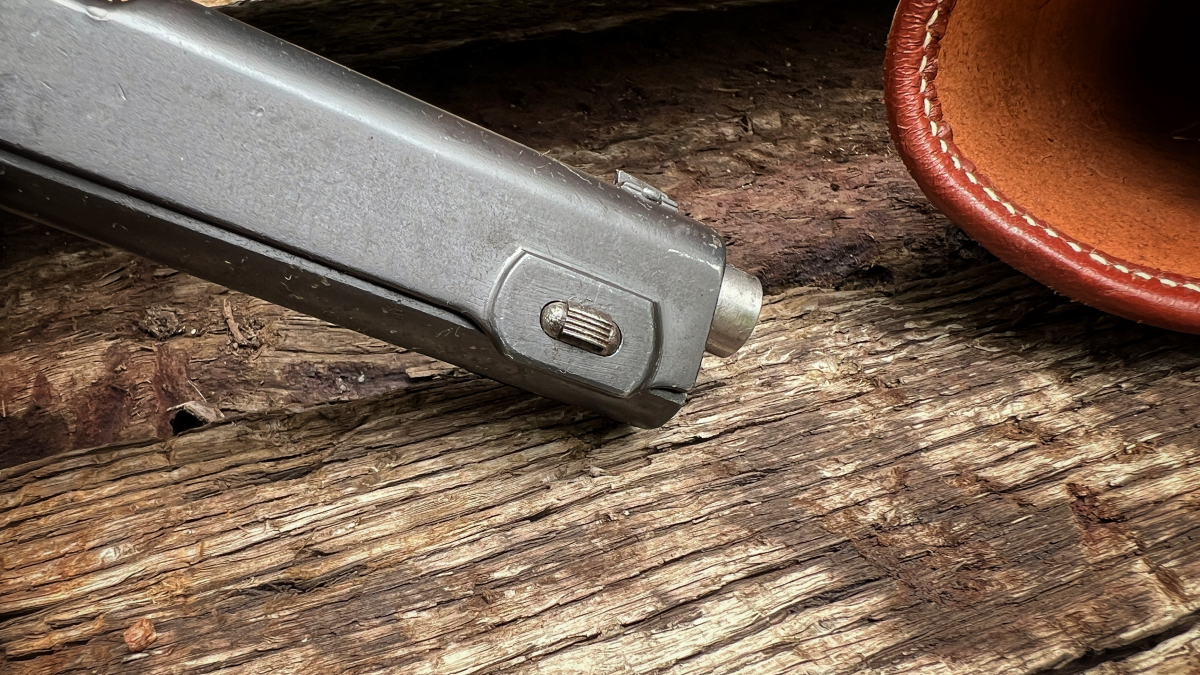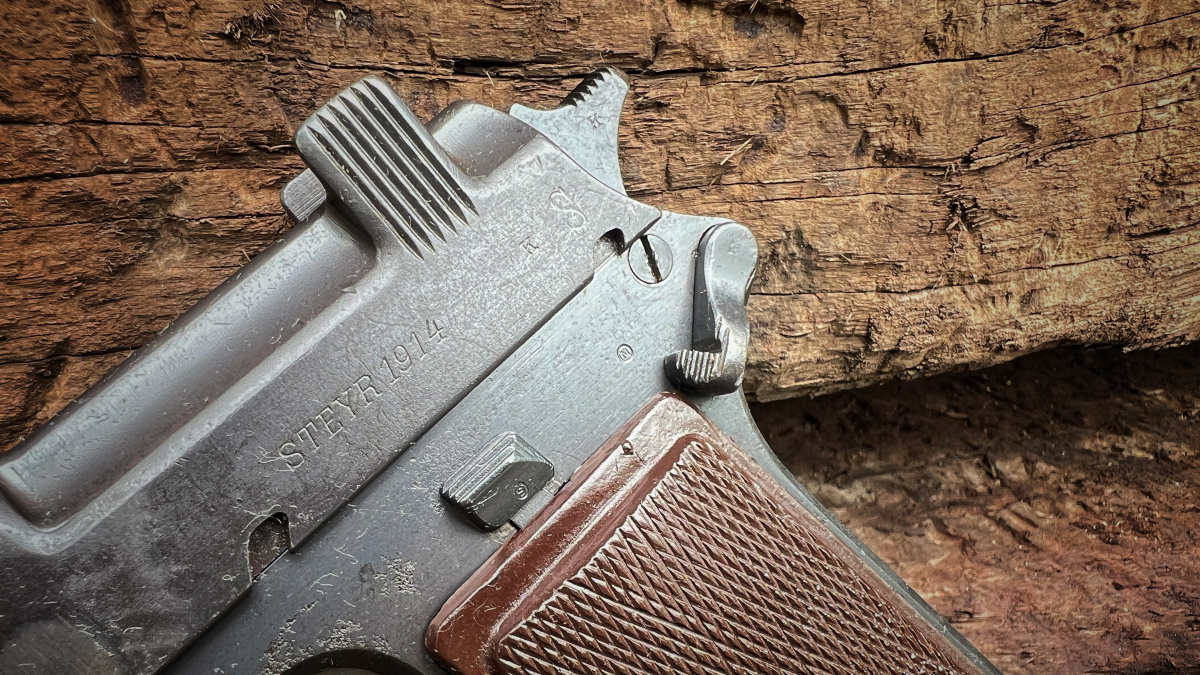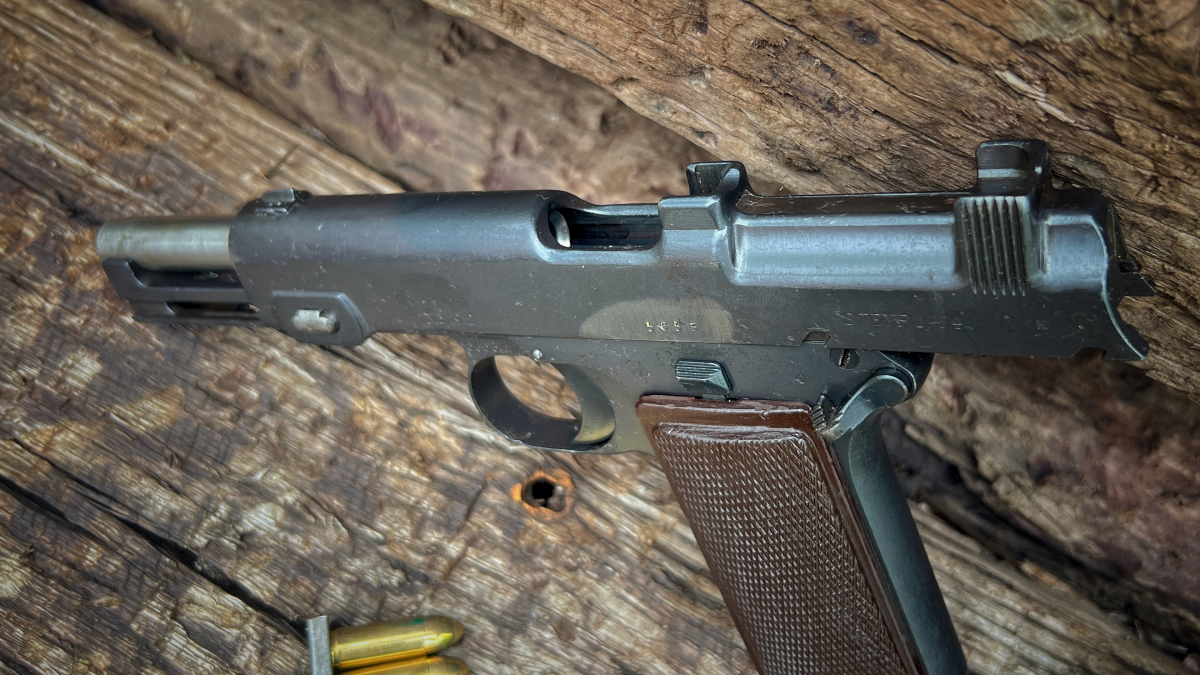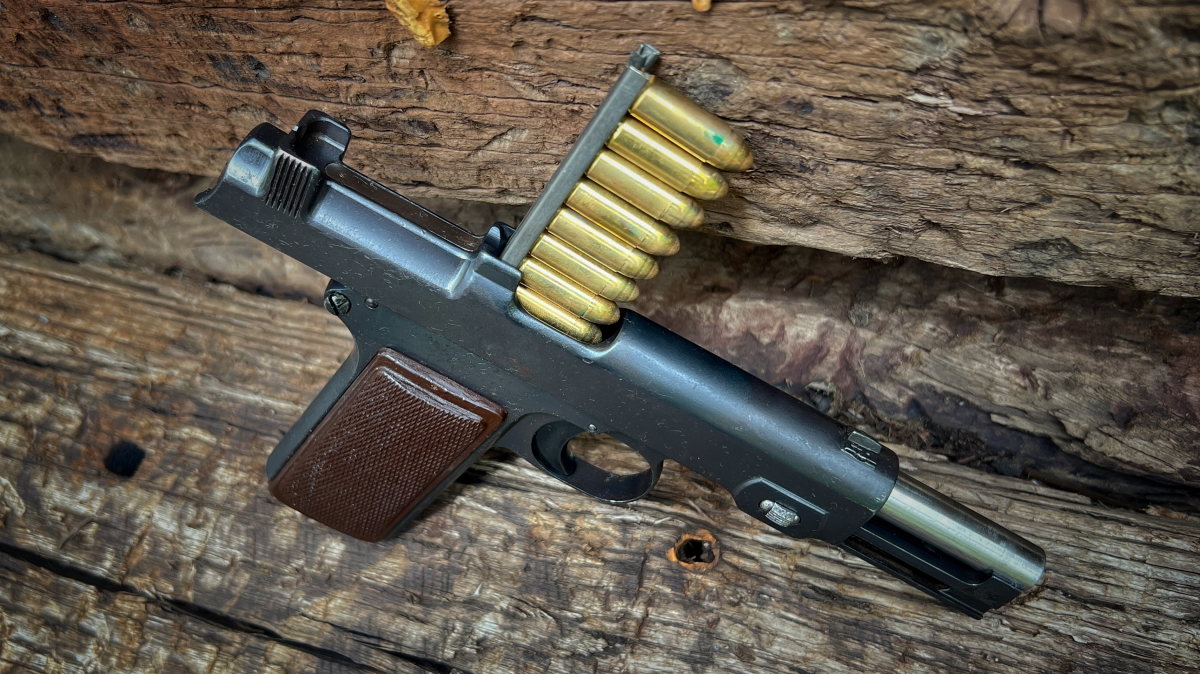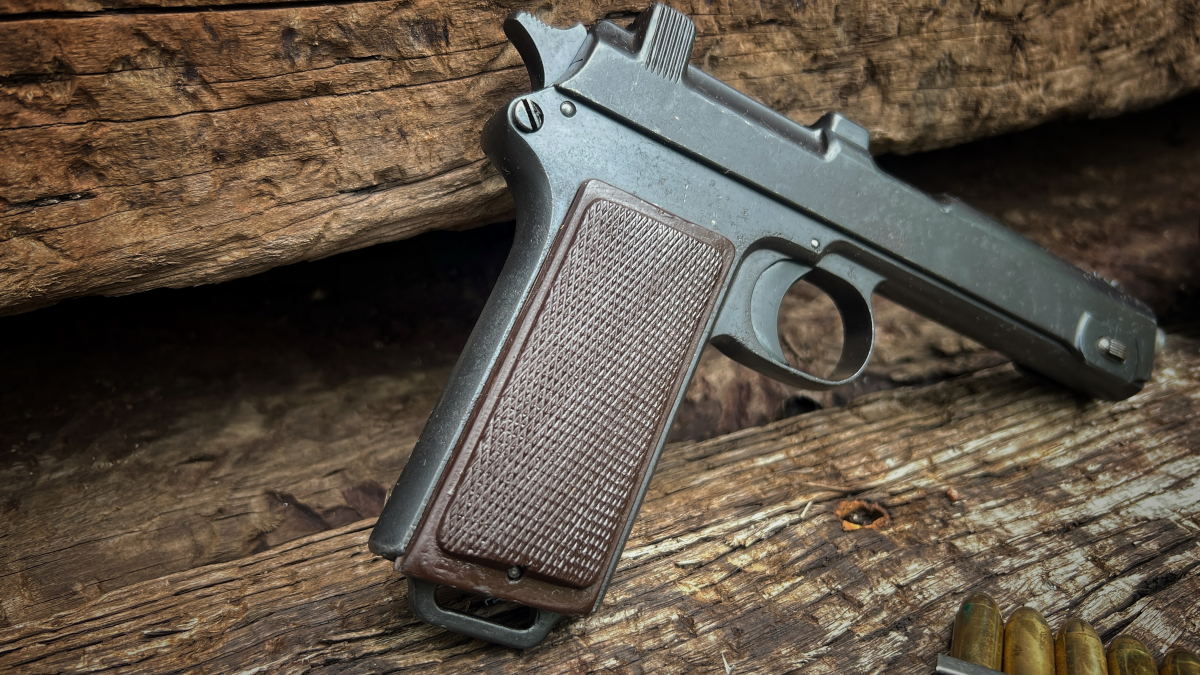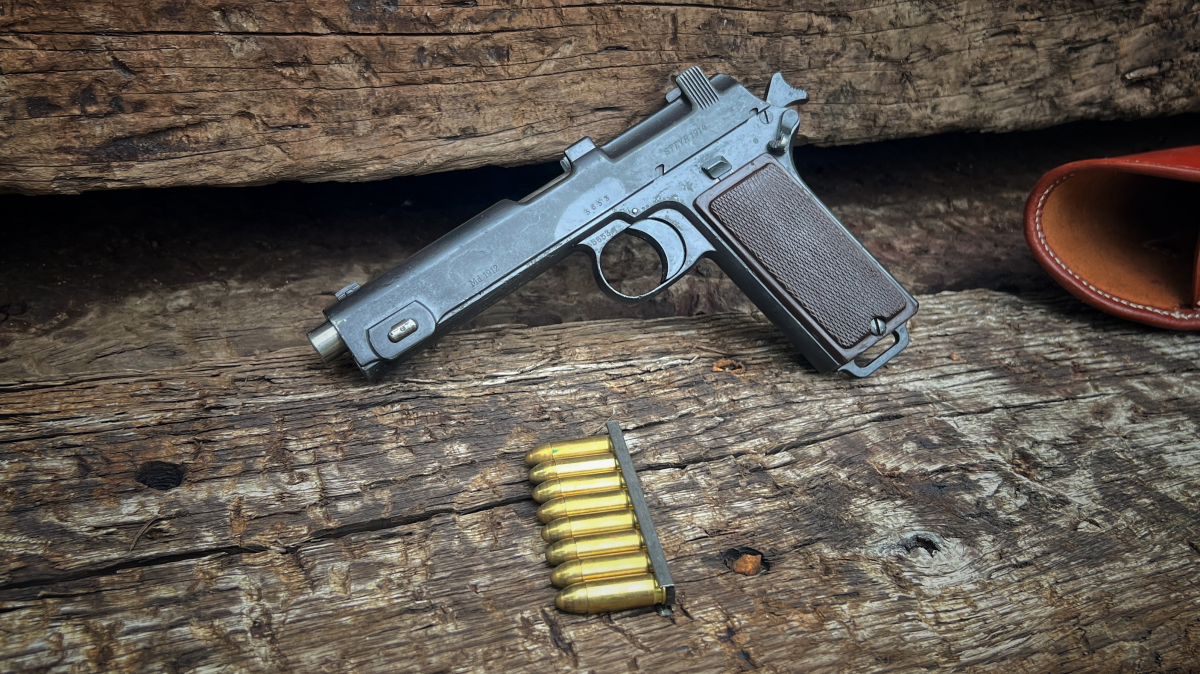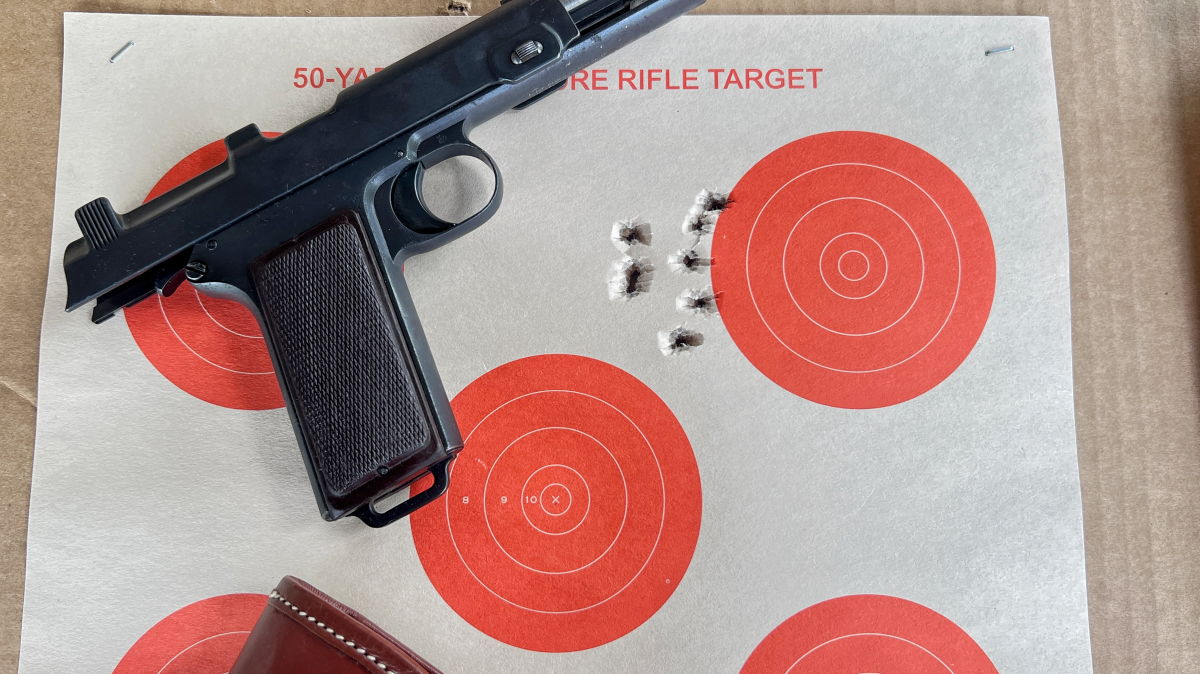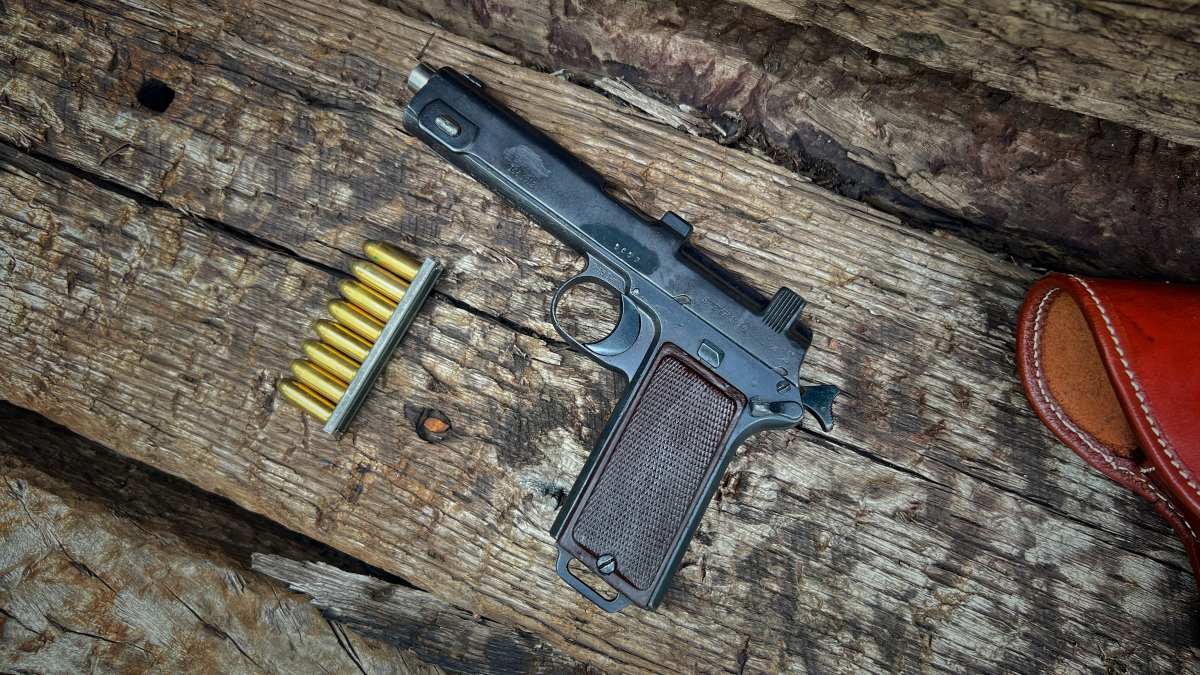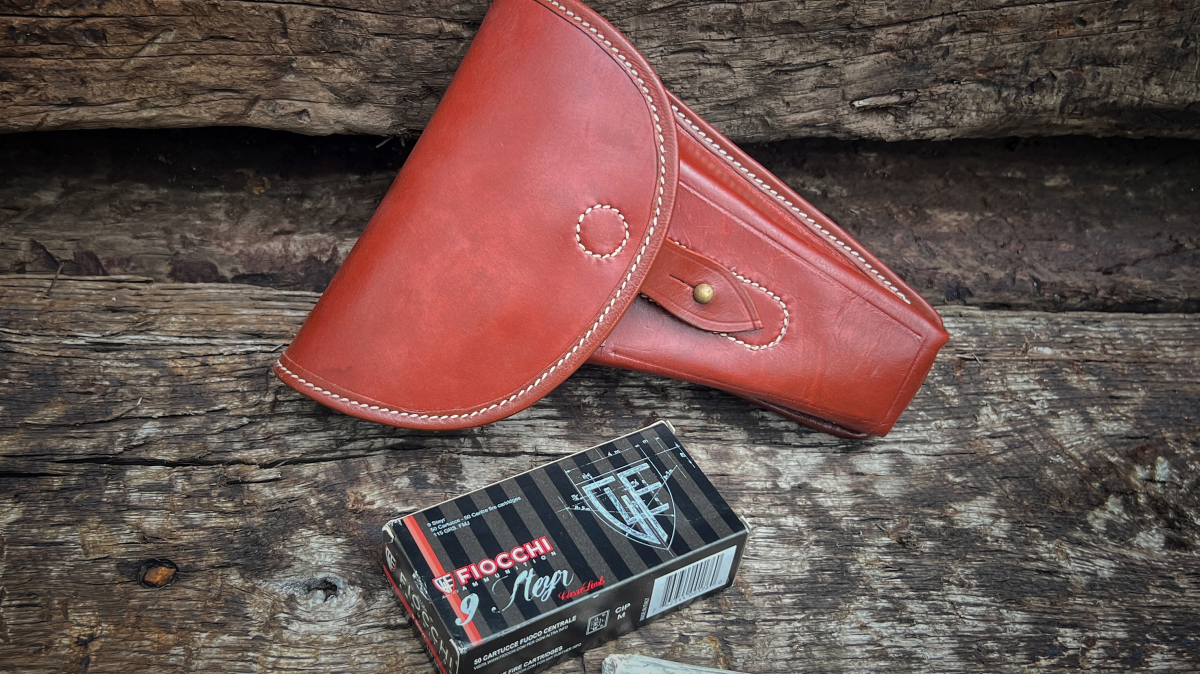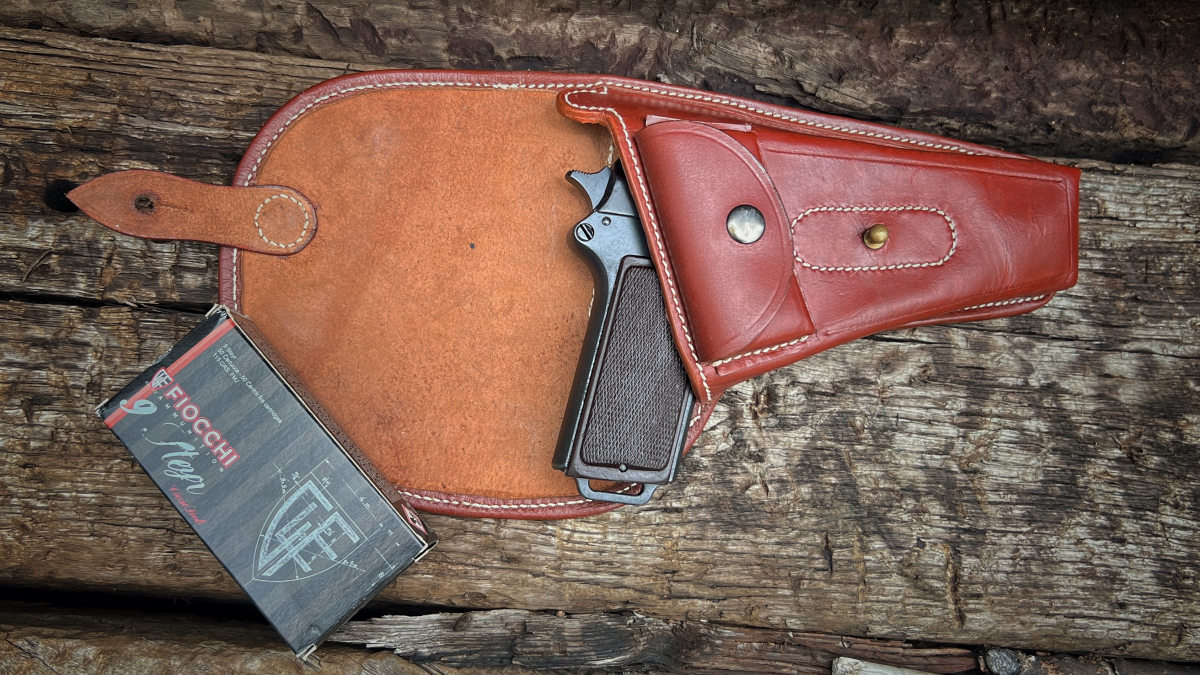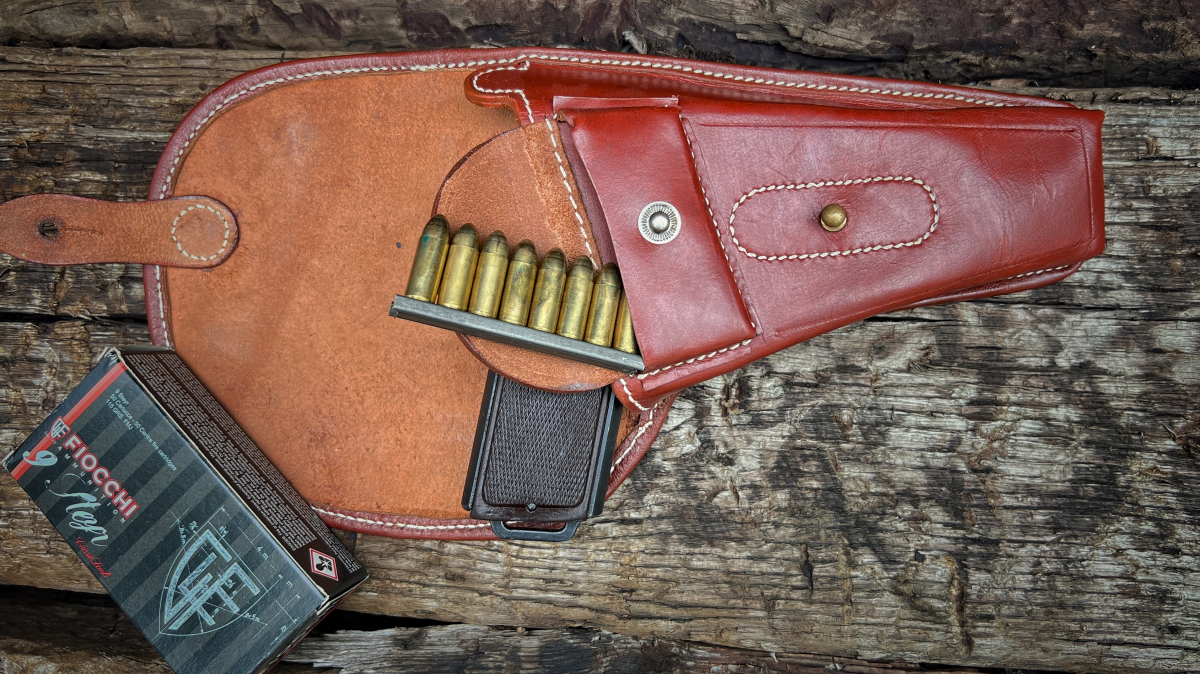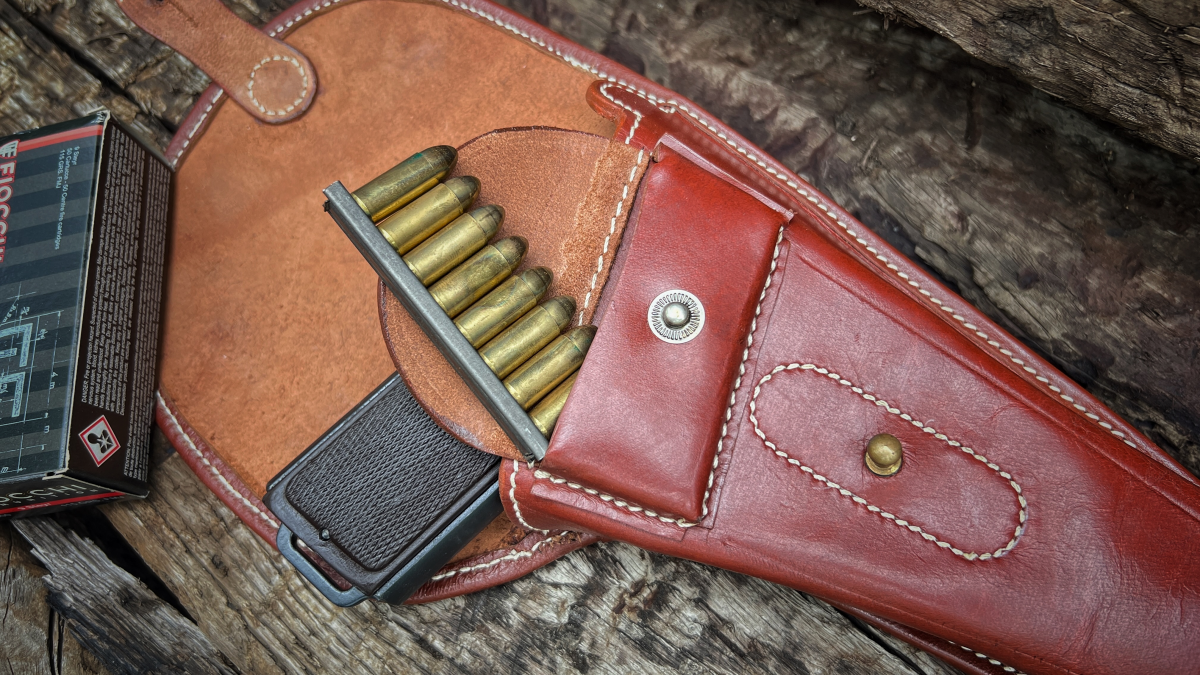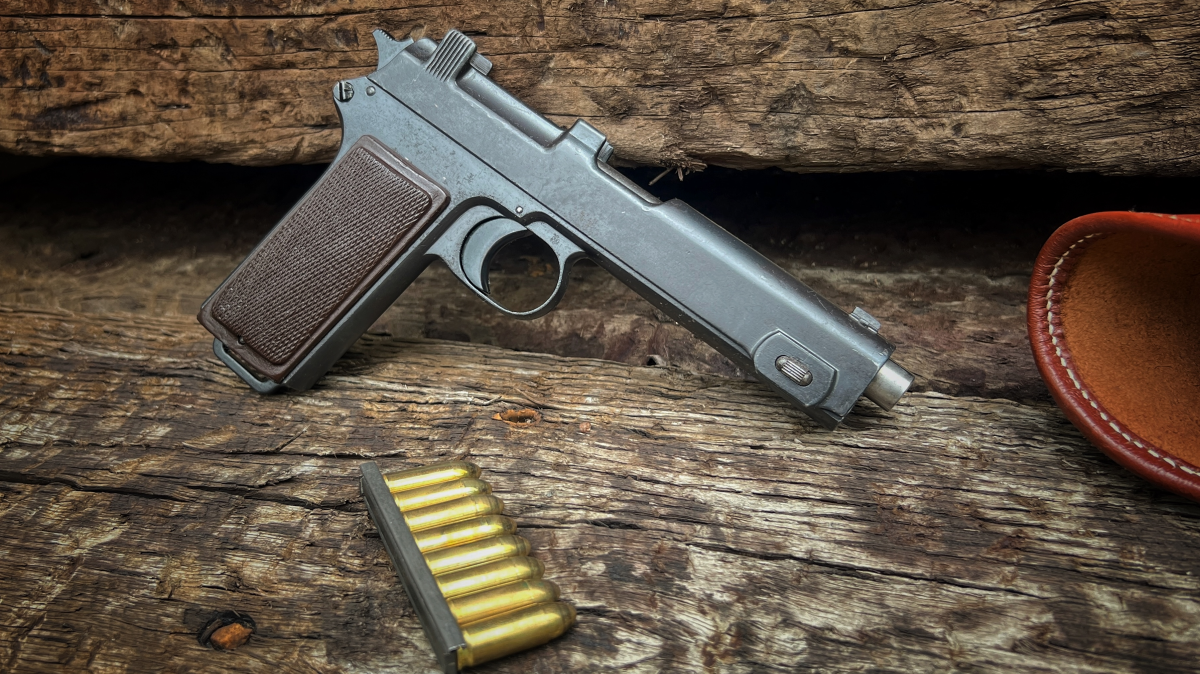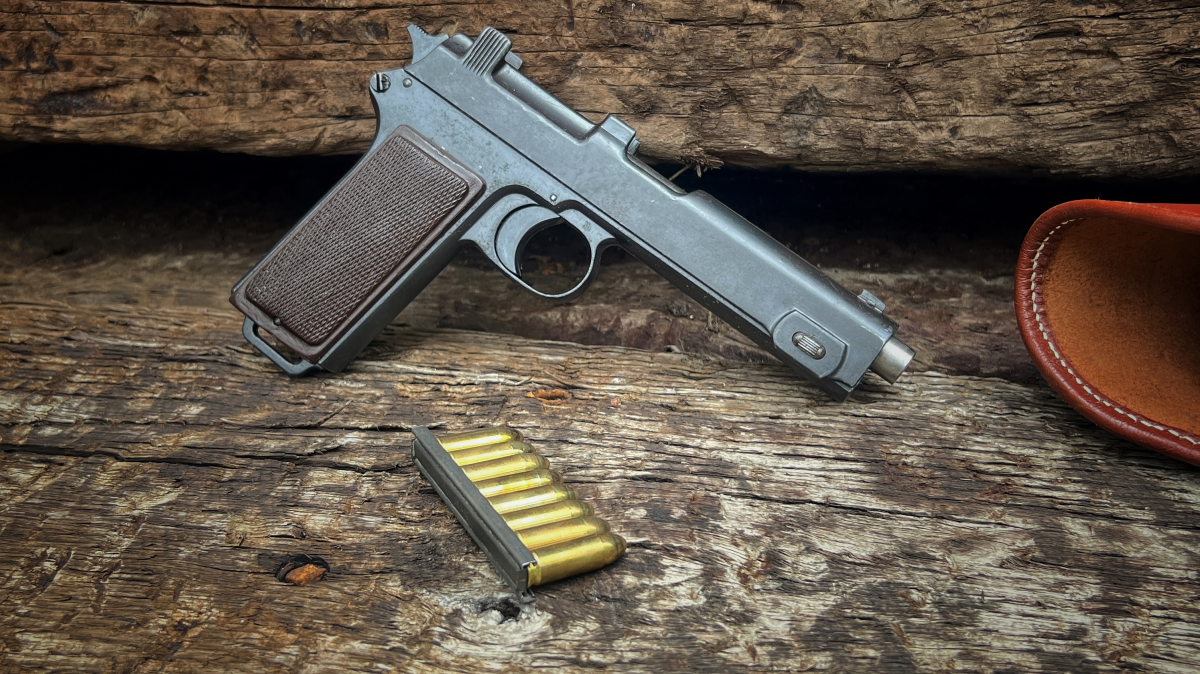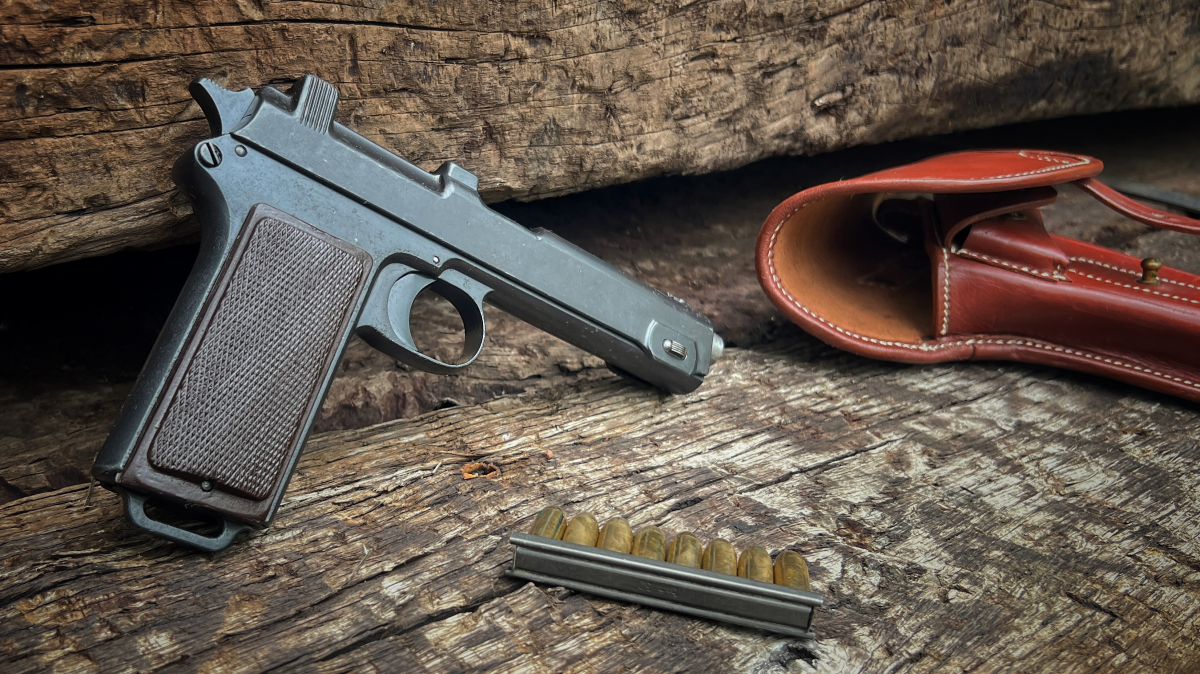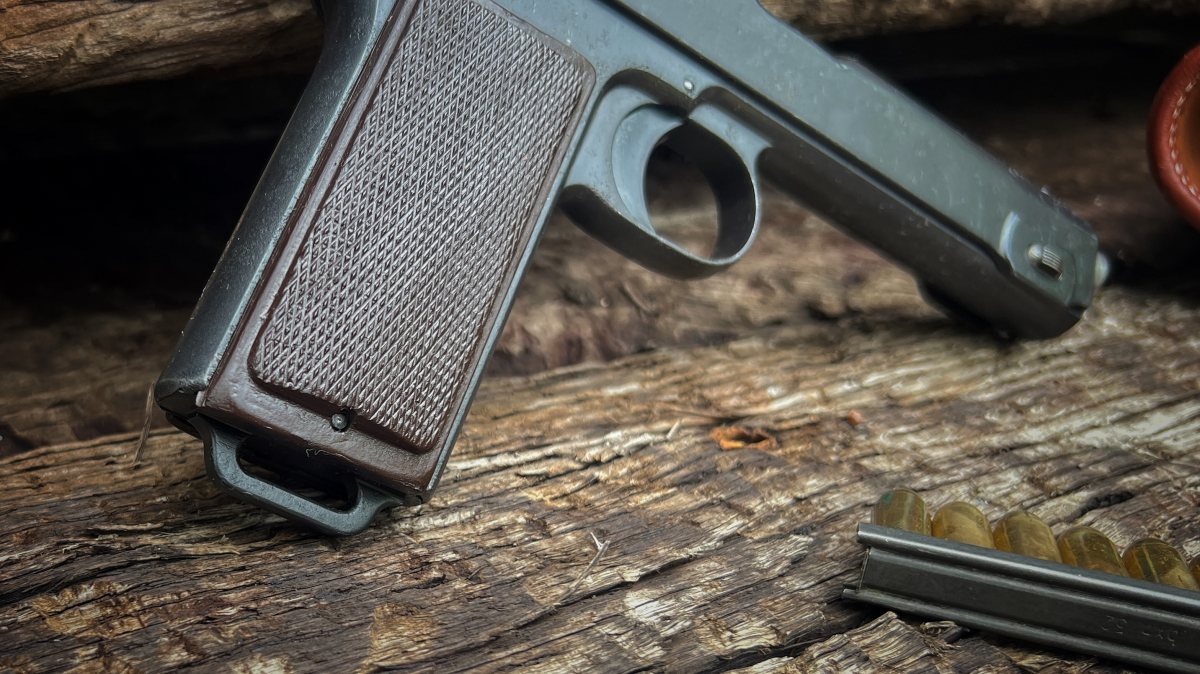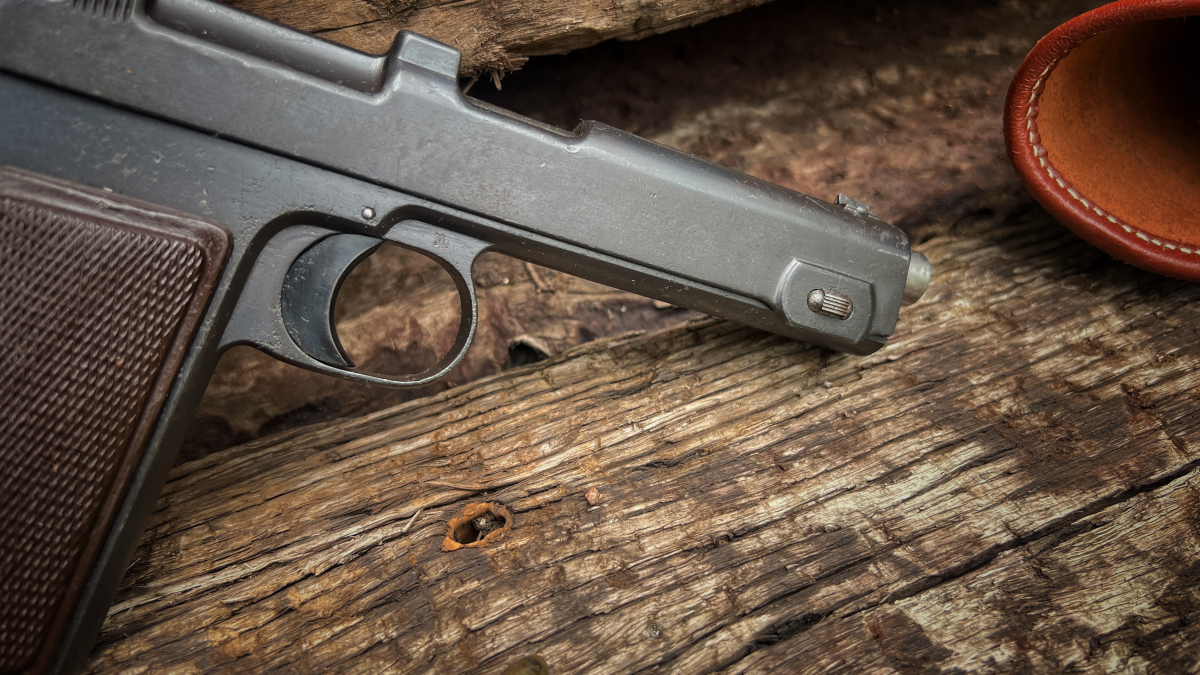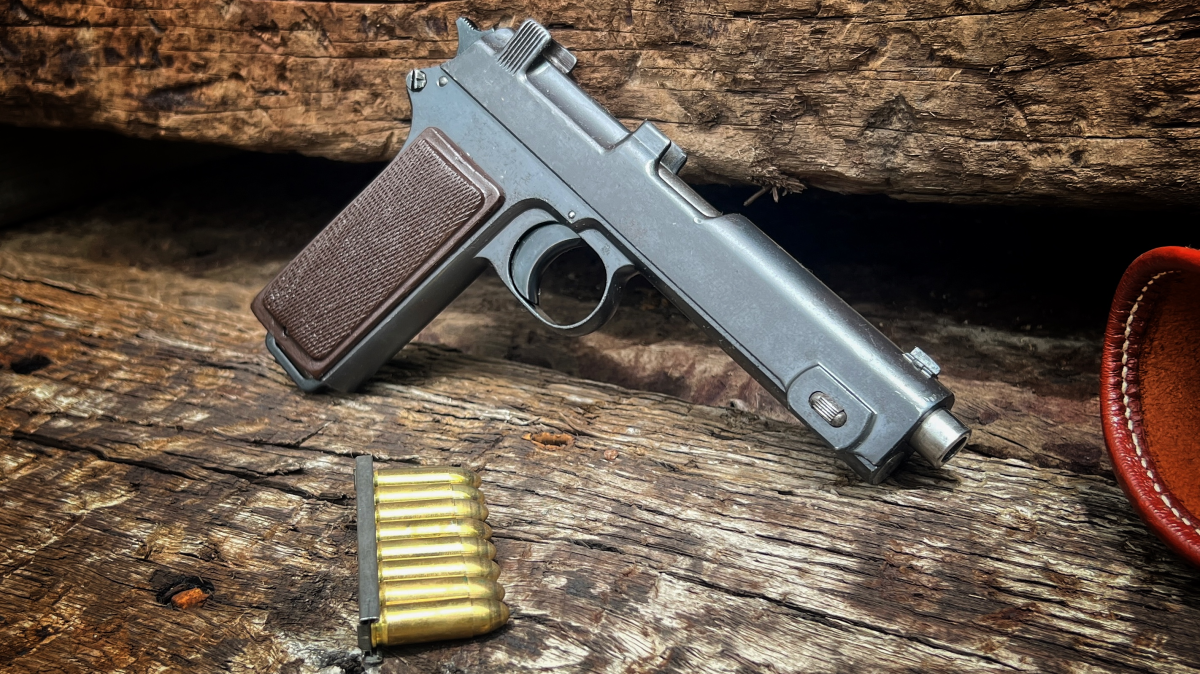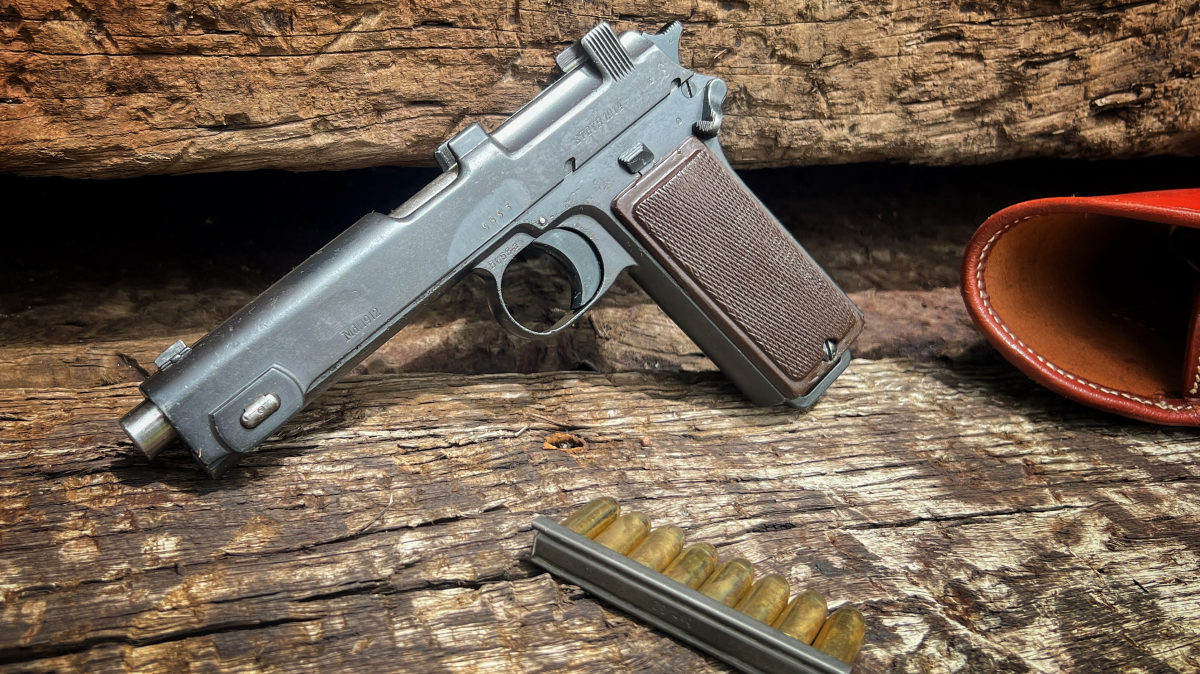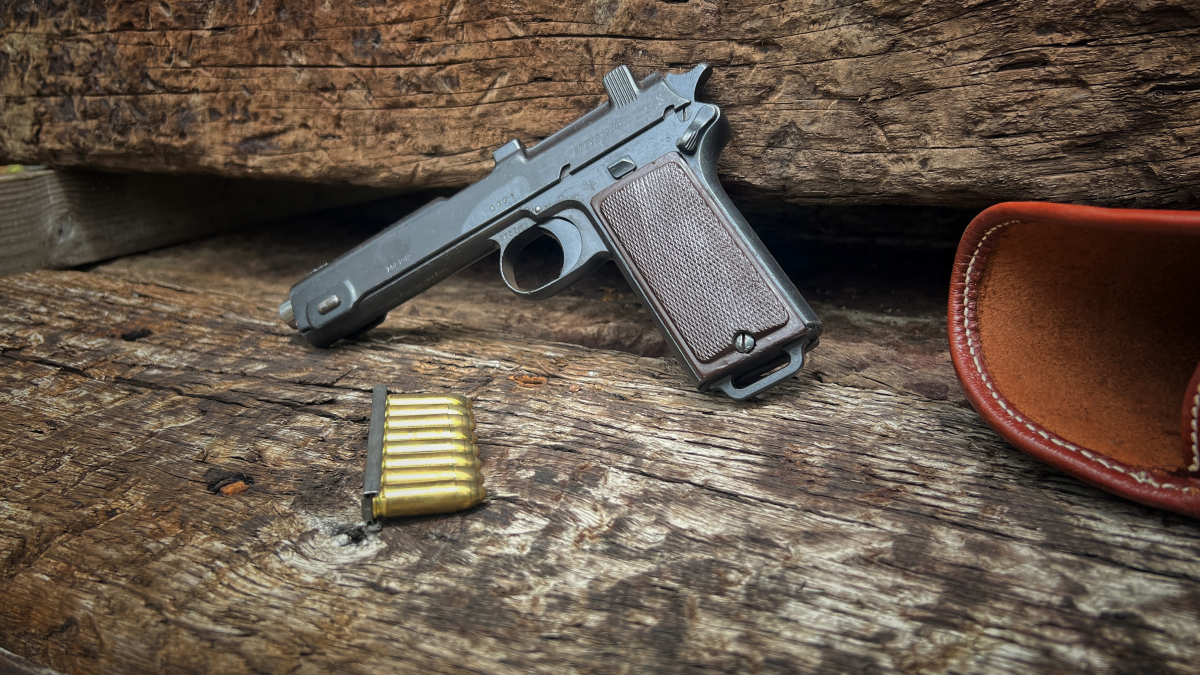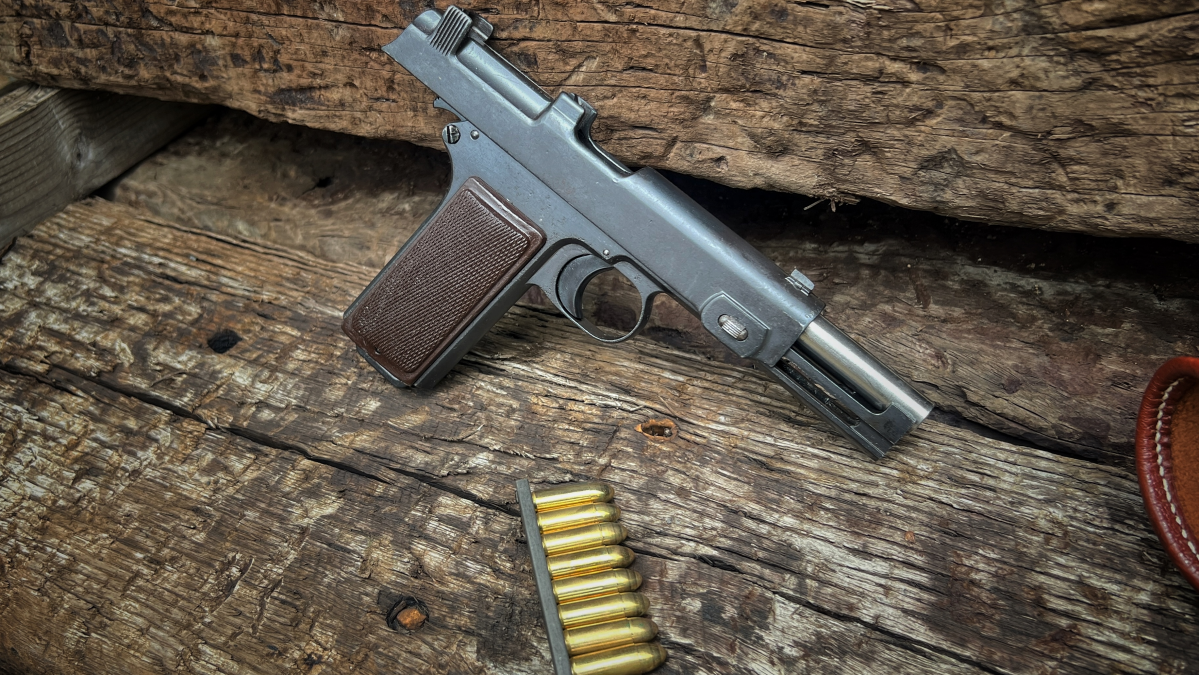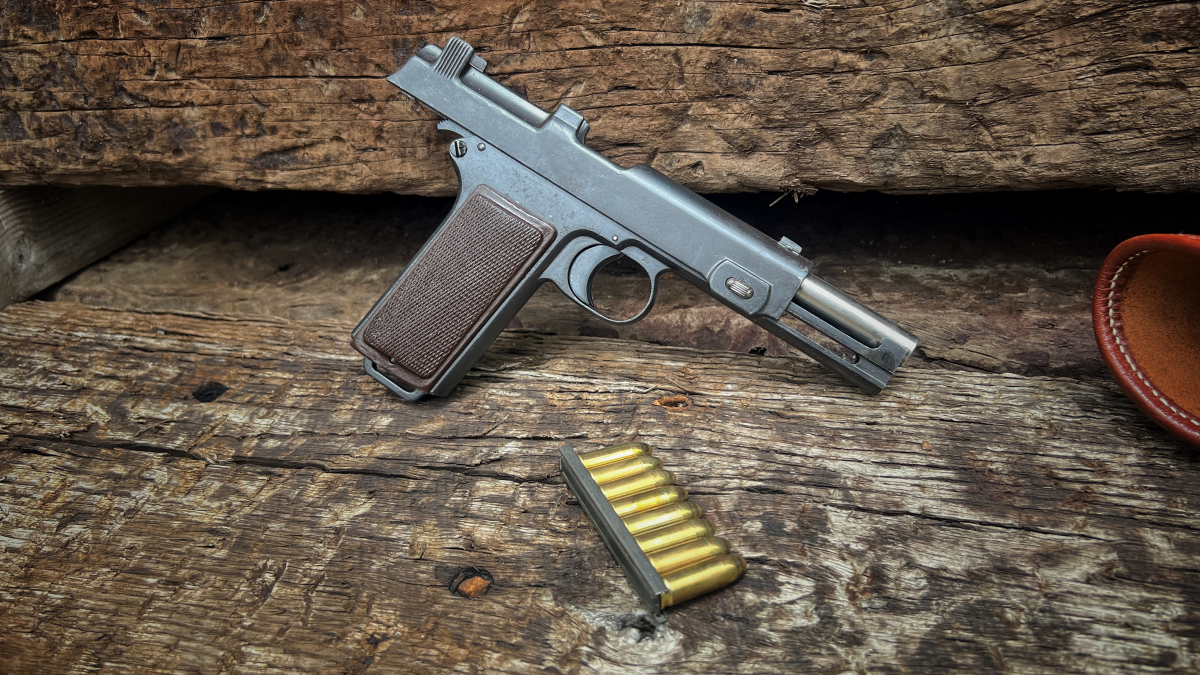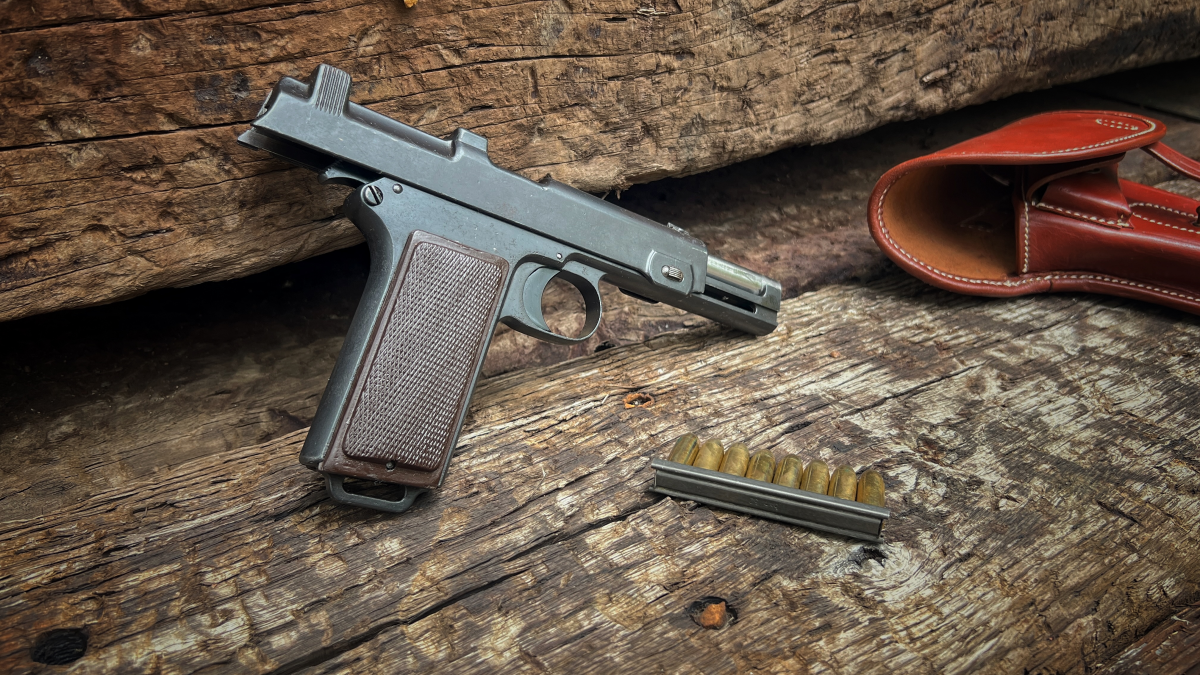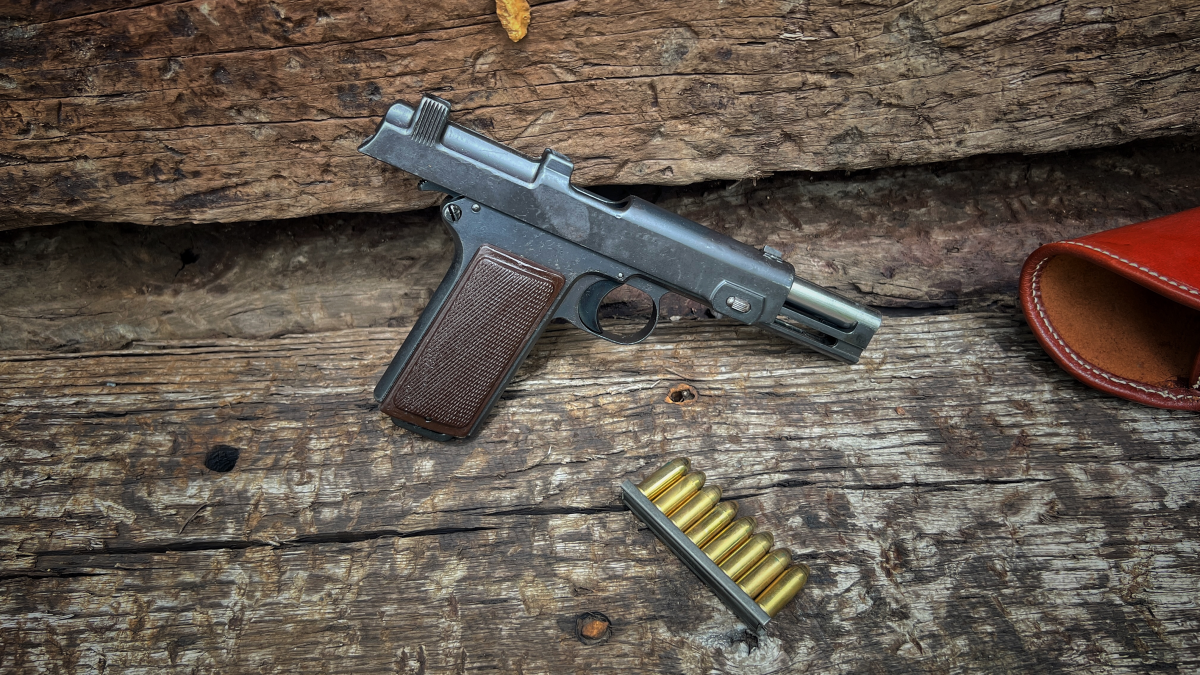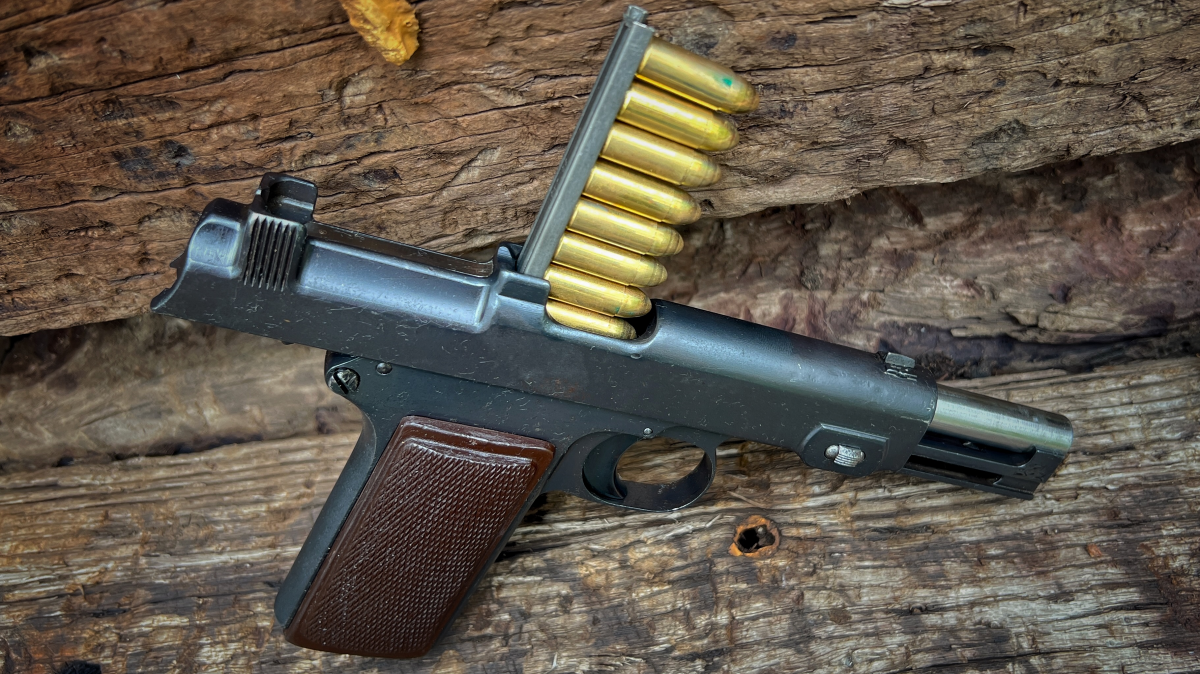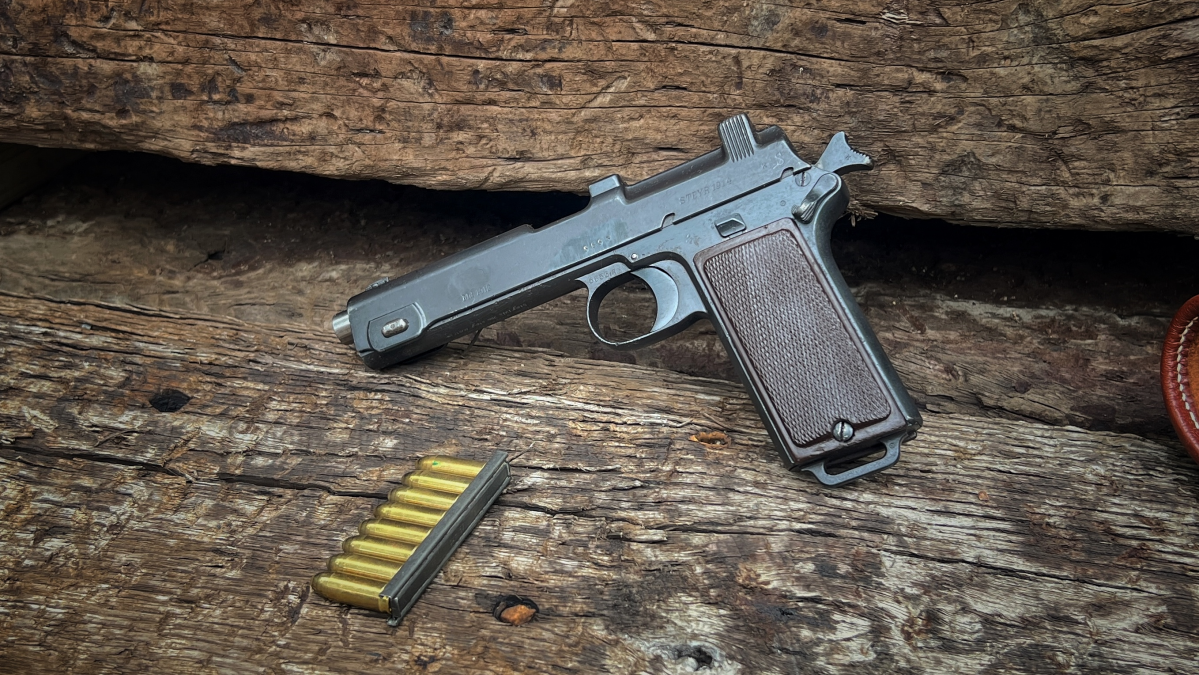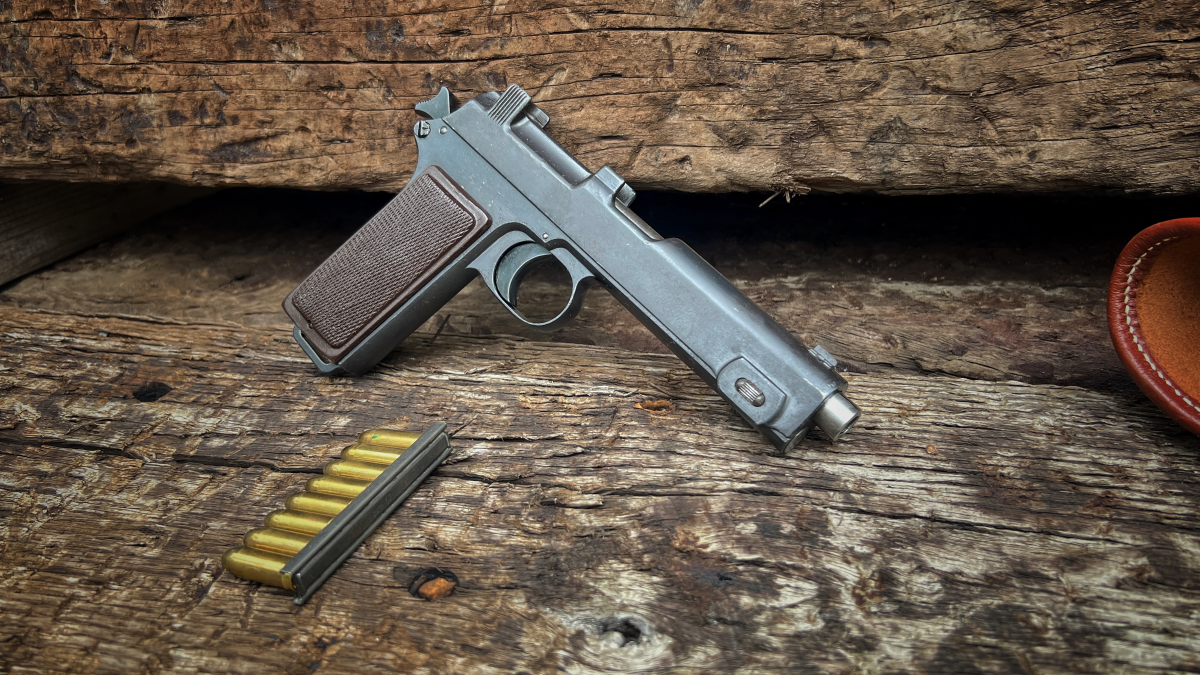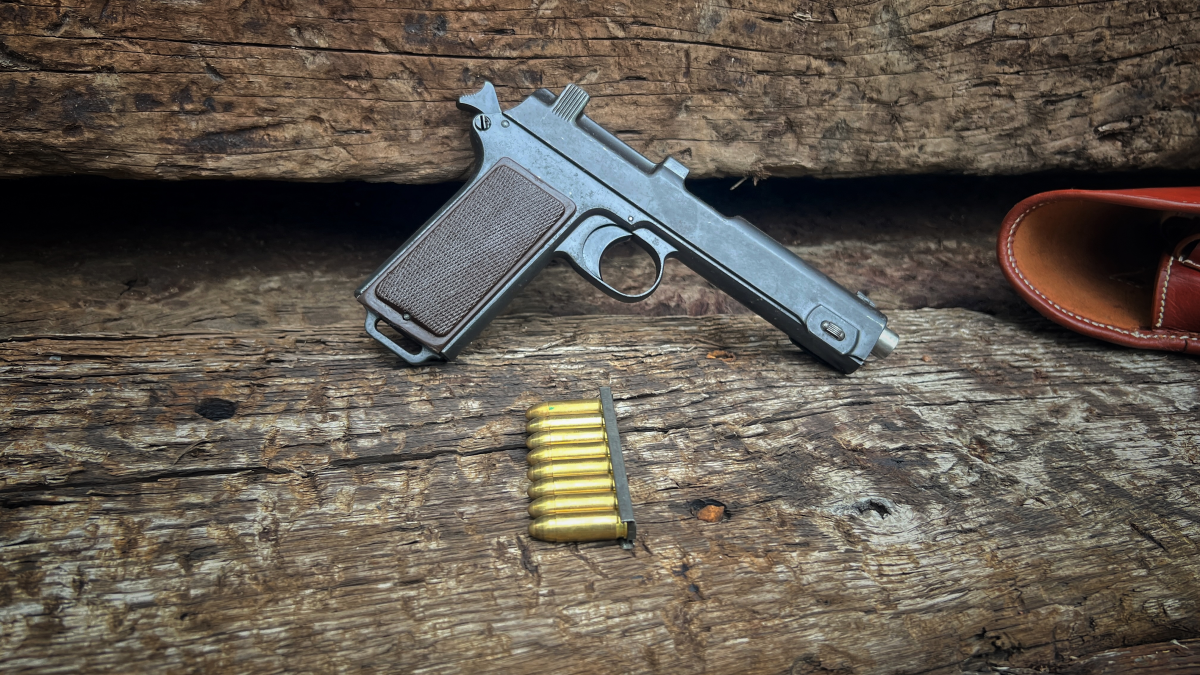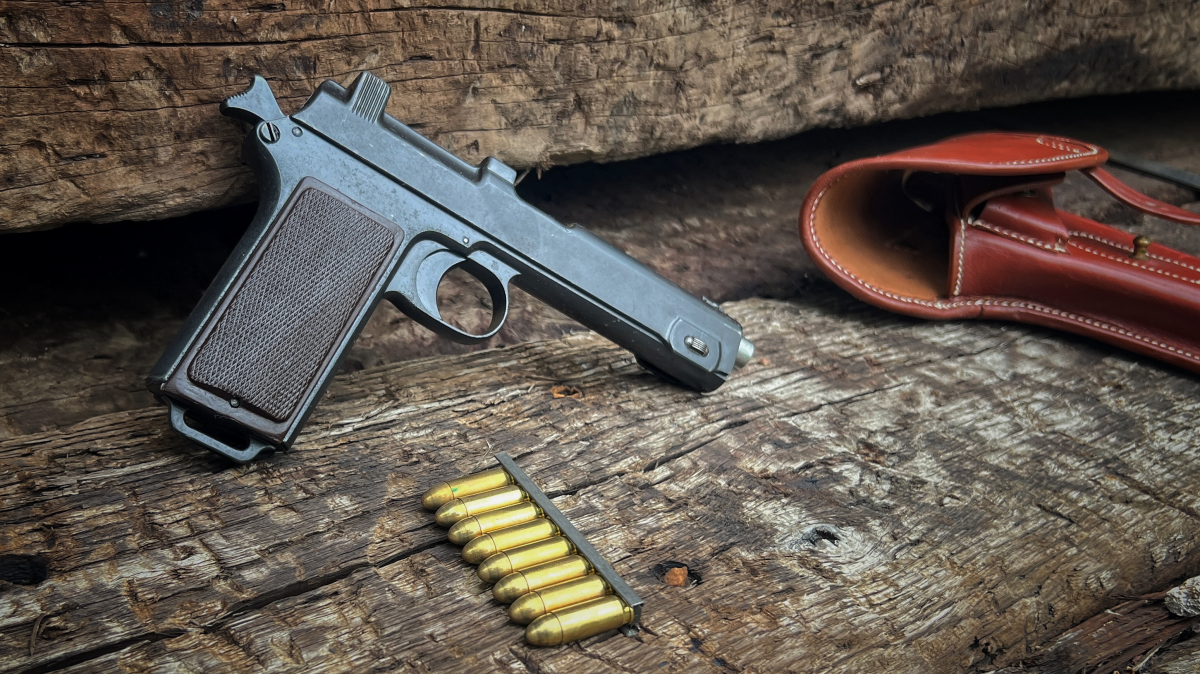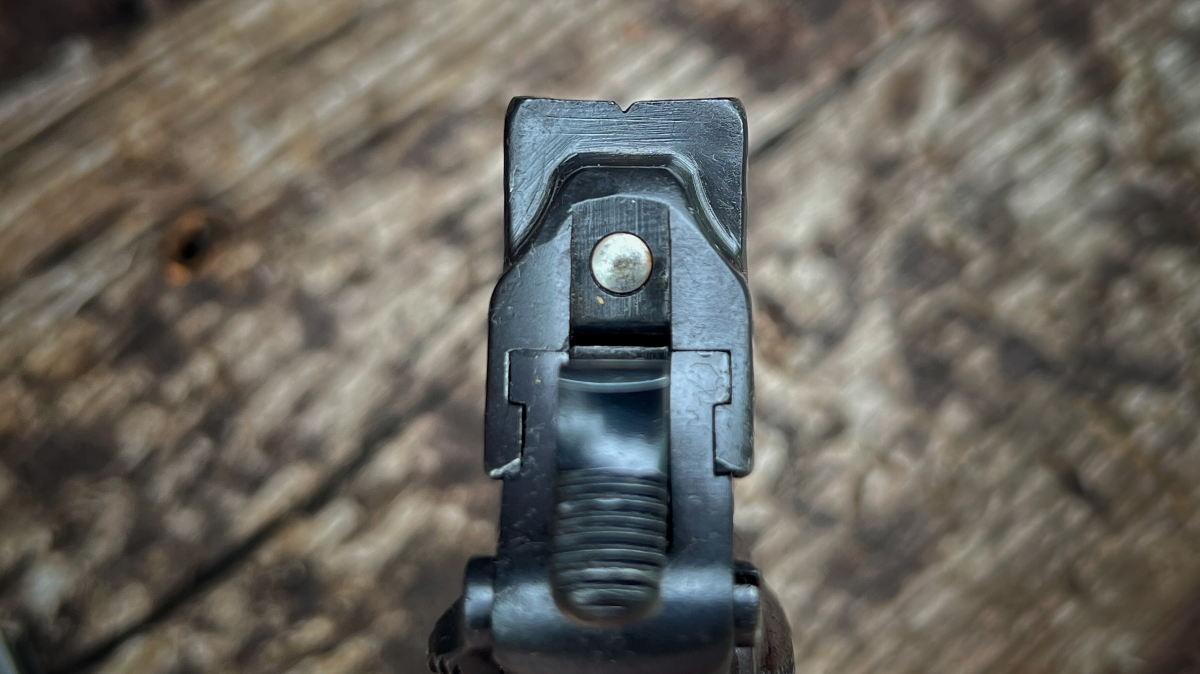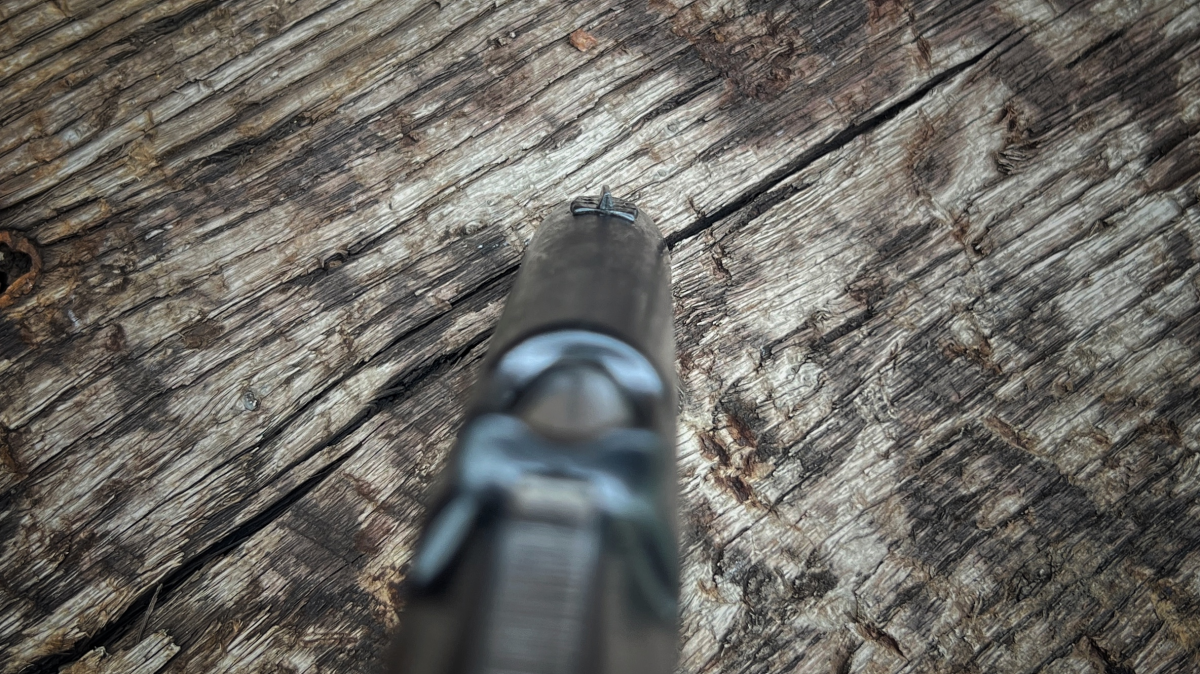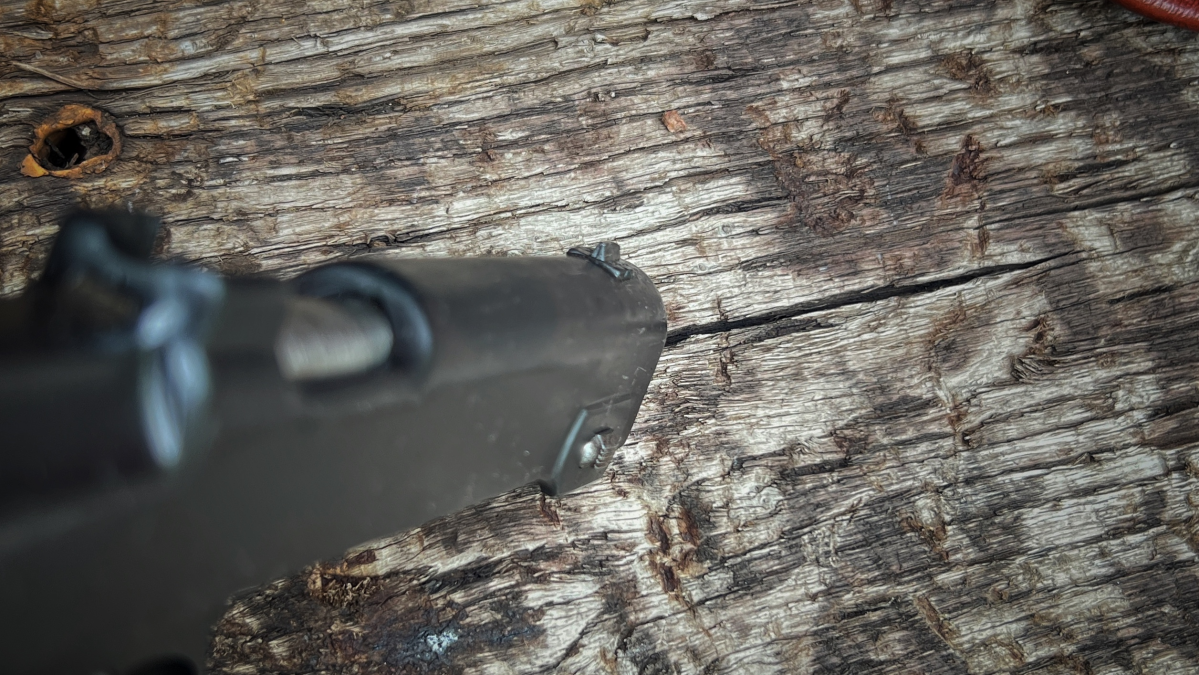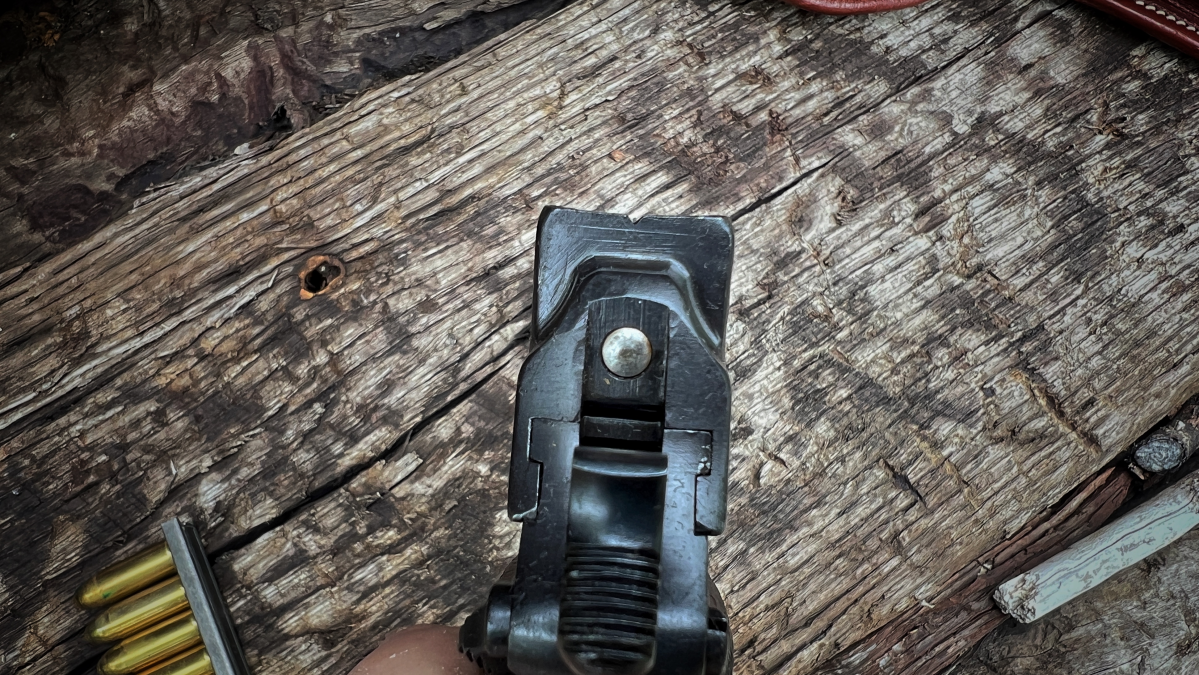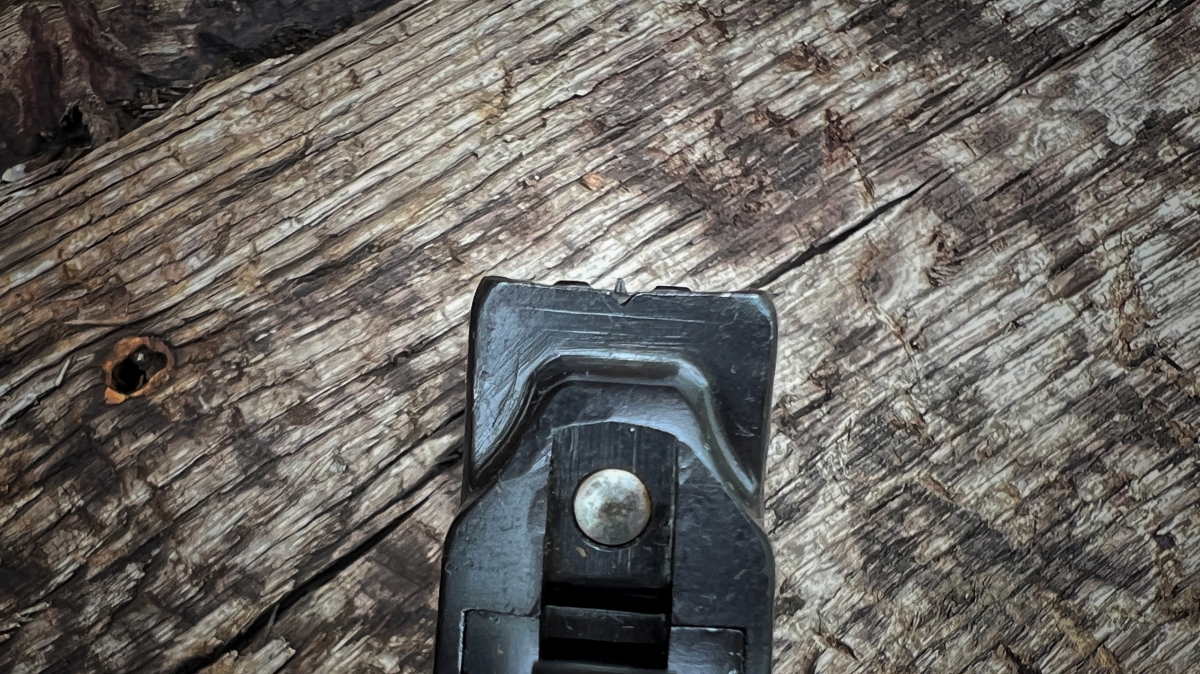Curious Relics #093: A Comfy Shooter – Steyr 1912
Sam.S 07.10.24
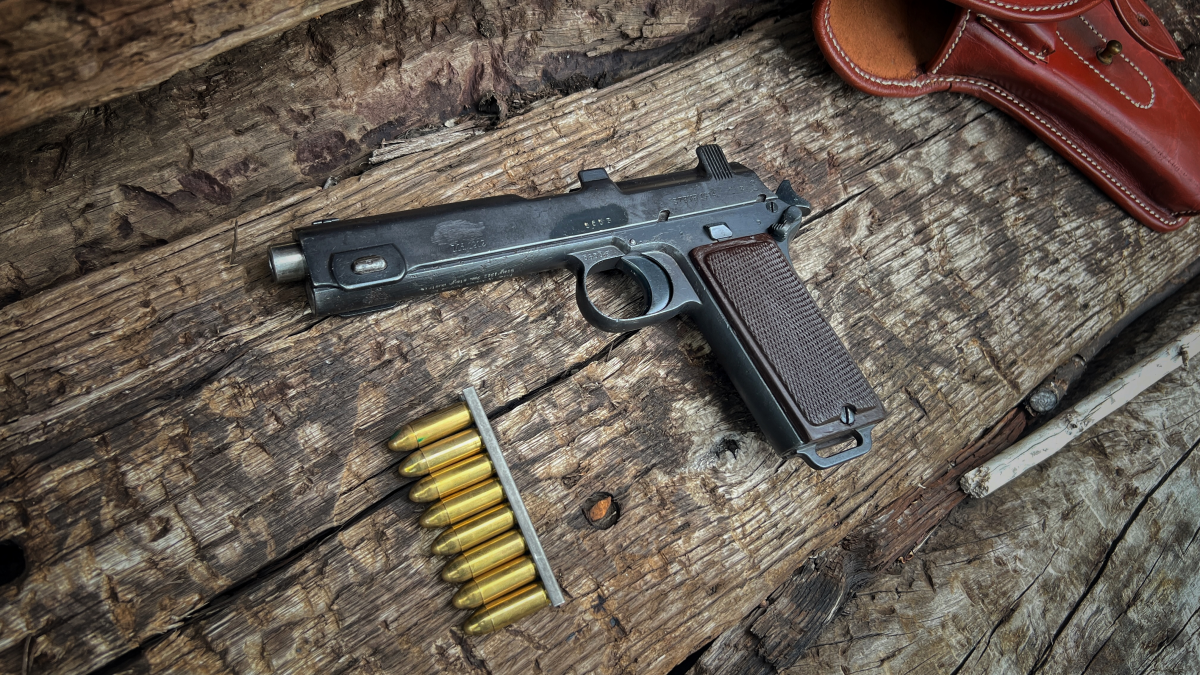
Welcome, if you are a newcomer to this fun bi-weekly segment of AllOutdoor.com! The last time around I covered the history, variations, dating, specifications, and parts and now we are finally onto the best part of all. This time around we are going to take this old gal to the range. It really is a pleasure to shoot a firearm that is over 100 years old (this one is 110 this year). The Steyr 1912 has at reputation (at least in my book) of being one of the softer shooting yet powerful handguns from the World War One era. Hate to spoil it all too soon so let’s dive right into the range segment of the Steyr 1912!
Welcome to our recurring series of “Curious Relics.” Here, we want to share all of our experiences, knowledge, misadventures, and passion for older firearms that one might categorize as a Curio & Relic – any firearm that is at least 50 years old according to the ATF. Hopefully along the way you can garner a greater appreciation for older firearms like we do, and simultaneously you can teach us things as well through sharing your own expertise and thoughts in the Comments. Understanding the firearms of old, their importance, and their development which lead to many of the arms we now cherish today is incredibly fascinating and we hope you enjoy what we have to share, too!
Range Time: Steyr 1912
So let’s talk about loading the Steyr 1912 before we even get to shooting it. It is sort of important given its uniqueness given it is fed via stripper clip but also the button arrangement may be confusing for most modern shooters. The button at the front towards the muzzle is the slide key or wedge. This keeps the slide mated with the frame and it is often a piece that goes missing with use on these old guns due to their age as wear and tear loosens things up. Long way around to saying that we do not need to touch that.
The slide will automatically lock back on an empty magazine so in order to load it we just bring the slide to the rear. If we don’t want the slide to run forward after removing the empty stripper clip the slide can be brought rearward a slight bit more in order to place the safety in a notch. When the stripper clip is inserted into the guides on top and the eight rounds of 9×23 Steyr (9mm Steyr) are shoved into the internal magazine we can remove the clip. When we are ready to fire we can drop the slide by releasing the safety latch.
This is the part that fumbles a lot of modern shooters. There is a button on the side of the gun that resembles a slide release but in reality, it is a magazine eject of sorts. Similar to an M1 Garand with its clip release on the side this button will allow all of the cartridges to eject from their spring pressure. It is a way to rapidly unload when you do not want to fire.
Now onto the fun stuff! Shooting the Steyr 1912 is one of the most comfortable experiences a person can have with a WWI-era pistol in a similar class. It is soft and smooth in a way that makes the 9mm Steyr cartridge feel weak but it and its hotter 9mm Largo counterpart had a really good chance of taking the 9mm crown against 9mm Luger if it was not for their longer length and the 9mm Luger being more available in the world market.
The Steyr 1912 is a very unassuming gun. It really is an ugly duckling, often referred to as what a child would draw if they were told to draw a pistol. An L shape with a chubby grip and long skinny snout. In reality, it is that unattractive but it is very comfortable in the hand. At least in larger hands. The WWI-era grips have an odd added thickness to them whereas the straight serrated WWII-era replacement grips are a bit more slender. Regardless the hold is very neat.
The safety lever is a bit annoying in that larger hands may make contact with the lever ever so slightly while shooting and cause the gun to become on safe and suddenly stop shooting. I have had this happen with friends and co-workers who were fortunate enough to shoot such a treasure. All of us think it is some grand malfunction must be occurring when in reality it is just on safe.
The sights leave something to be desired. The rear v-notch and front blade do not really match up nicely. They work fine for hitting what you aim at but it does not feel natural when aiming. As you can see from the target below my gun naturally shoots to the left. Despite the drift, it’s a nice group for this old gal.
Final Thoughts: Steyr 1912
The Steyr 1912 remains one of my most beloved firearm possessions. Mine isn’t perfect and the gun’s own image is odd in form. BUT! In handling and shooting it is a pleasant surprise and a worthy competitor to any mighty 9mm of the day. This ugly duckling turns into a swan at the range.
In closing, I hope our Curious Relics segment informed as well as entertained. This all was written in hopes of continued firearm appreciation and preservation. We did not just realize how guns were supposed to look and function. It was a long and tedious process that has shaped the world we live in. So, I put it to you! Is there a firearm out there that you feel does not get much notoriety? What should our next Curious Relics topic cover? As always, let us know all of your thoughts in the Comments below! We always appreciate your feedback.
Recent Content in Curious Relics:
- Curious Relics #086: Love at First Sight – The Savage 101
- Curious Relics #087: A Pistol Full of Mysteries – The Savage 101 Part II
- Curious Relics #088: Decidedly Difficult Dating – Savage Model 101 Part III
- Curious Relics #089: Single Six Shooter – Savage Model 101 Part IV
- Curious Relics #090: From Zero to Hero – The Steyr M1912
- Curious Relics #091: There is a Full Auto Steyr 1912?
- Curious Relics #092: Holsters & Stripper Clips – Steyr 1912
